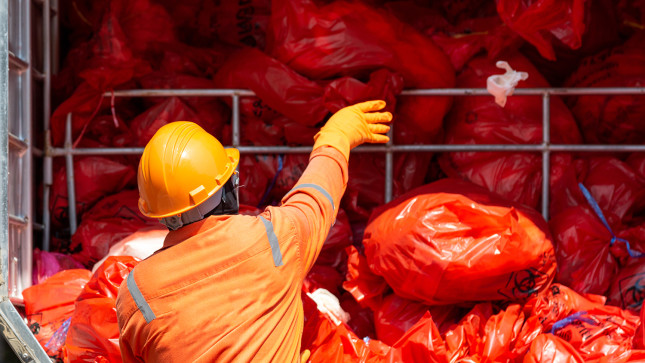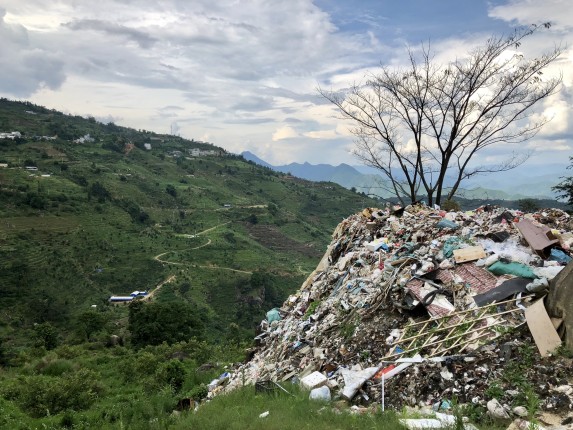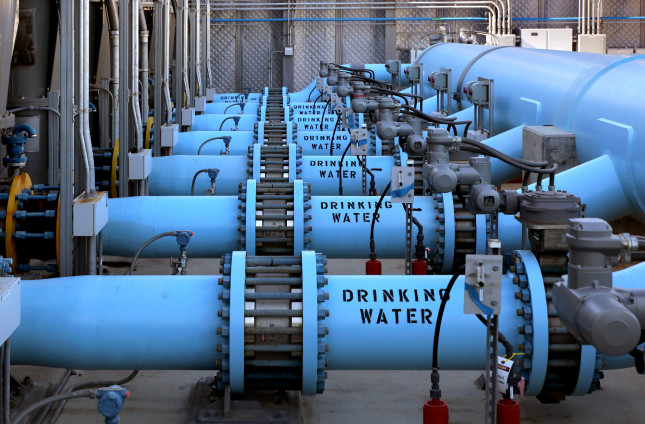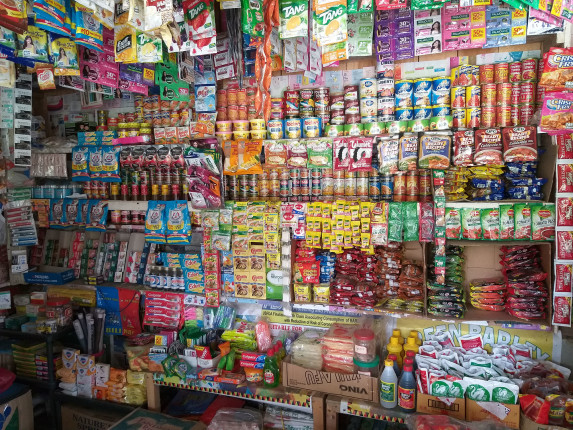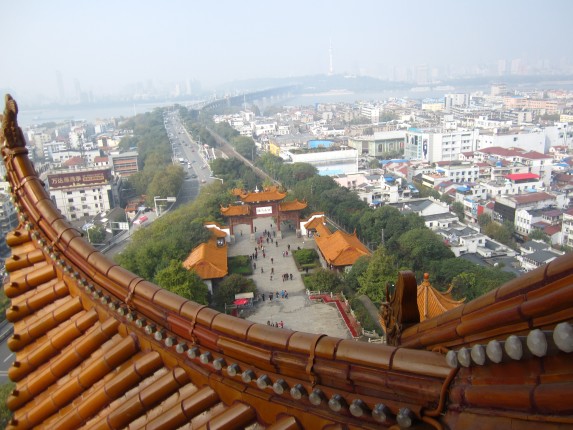-
China, Japan, and Korea: “Cleaner” Than the Worst Coal Plants, but Nowhere Near “Clean” Energy
›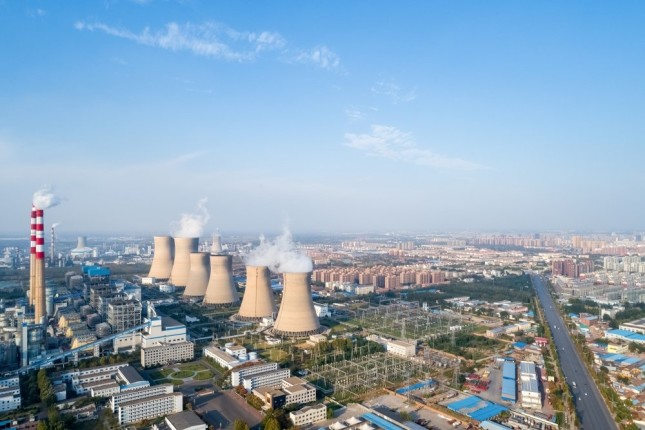
The convergence of environmental pressures and economic recession due to the COVID-19 pandemic makes the future of international finance for coal-fired power plants increasingly uncertain. Environmental advocates have long been concerned about international coal investments locking host nations into decades of harmful air pollution and carbon dioxide emissions that cause global climate change. Now, the future of these planned coal plants is at a crossroads.
-
Closing the Loop on Fashion Waste: Q&A with Evrnu cofounder Stacy Flynn
›
Stacy Flynn is intimately familiar with the ins and outs of fashion’s supply chain. She knows how clothes travel the world as they move through the stages of design, textile production, and garment formation before landing in your local retail store. For years, she managed these supply chains for Dupont and Target, making regular visits to suppliers in China who showed her pristine manufacturing facilities where she examined textile and clothing samples and discussed prices and delivery. Nothing could have prepared her for when she returned in 2010 with a Seattle-based startup to tour smaller textile and dyeing factories, and saw the staggering pollution these second and third tier suppliers generated. Her guides told her that during periods of increased textile production, wastewater emissions turn the rivers deep unnatural hues and factory exhaust smothered the air outdoors and even indoors for the workers.
-
A Dangerous Taste for Plastic in the Ocean Depths
› If you watched Finding Nemo (who hasn’t?), you may remember Nemo’s home in the beautiful pink sea anemone with its tentacles waving around. These tentacles are able to sting and eat fish, crabs, and sometimes even birds. Lucky for Nemo, clownfish have a mucus coat that protects them from the sea anemone’s poisonous stings. And lucky for the sea anemone, clownfish protect them from being consumed by other fish and provide them nutrients through their food and fecal droppings. Nemo and his fellow clownfish, however, can’t shield these sedentary sea animals from nearly invisible plastic microfibers or plastic preproduction pellets, called nurdles. At Duke University I have been studying one specific species of sea anemone, Aiptasia pallida, which seems to find plastic particularly tasty. My work is part of a larger wave of scientific research around the world looking into how and why sea animals are eating microplastics and how it may impact their health.
If you watched Finding Nemo (who hasn’t?), you may remember Nemo’s home in the beautiful pink sea anemone with its tentacles waving around. These tentacles are able to sting and eat fish, crabs, and sometimes even birds. Lucky for Nemo, clownfish have a mucus coat that protects them from the sea anemone’s poisonous stings. And lucky for the sea anemone, clownfish protect them from being consumed by other fish and provide them nutrients through their food and fecal droppings. Nemo and his fellow clownfish, however, can’t shield these sedentary sea animals from nearly invisible plastic microfibers or plastic preproduction pellets, called nurdles. At Duke University I have been studying one specific species of sea anemone, Aiptasia pallida, which seems to find plastic particularly tasty. My work is part of a larger wave of scientific research around the world looking into how and why sea animals are eating microplastics and how it may impact their health. -
Mountains and Molehills: Medical Waste in China and the U.S.
›
At the initial epicenter of the COVID-19 pandemic in Wuhan, China, the daily output of medical waste soared five times its average volume — from about 40 tons to as much as 250 tons at the end of February. This overwhelmed Wuhan’s single specialized medical waste treatment plant, far exceeding its 50 tons-per-day processing capacity. As the pandemic progressed throughout China, it revealed the shortfalls in medical waste management capacity in many cities. At a news conference in Beijing in March, Zhao Qunying, director of the emergency management office of the Ministry of Ecology and Environment, reported that 22 cities were operating over-capacity and 28 cities were working at full or near full load.
-
Out of Sorts: Rural Waste Problems in China and the United States
›
In Bangdong Village, Yunnan, Matthew Chitwood wanted to do his part to keep the stunning mountainous area clean during his two-year residency as a China fellow at the Institute of Current World Affairs. One day he took his empty beer bottles to a local convenience shop for recycling, but the owners would not accept them. He was told to dump them over the embankment. Looking down the slope at the accumulated piles of broken furniture, soggy socks, food waste, and crushed soda cans entangled with plastic bags, Matt refused. Later, Matt’s friends flung his bottles into the gully. He related his frustrating recycling attempt to Mao Da, the founder of China Zero Waste Alliance, who told Matt that “rural trash management itself is a misnomer… It’s really just trash relocation.”
-
A Tale of Two Coastlines: Desalination in China and California
›
The port city of Tianjin is in desperate need of water. The surface and groundwater supplies of this sprawling northeast Chinese metropolis have shrunk to dangerously low levels due to decades of reduced rainfall and overexploitation of the Hai River that flows through the city. According to the Tianjin Environmental Protection Bureau, the city’s per capita water resources are one-twentieth of China’s national average, far below the UN benchmark for a water-stressed region. Despite promoting water conservation and metering among residential and industrial users, Tianjin still faces shortages that drive its reliance on large-scale water-supply infrastructure like the South-North Water Transfer Project and seawater desalination.
-
Turning off the Tap: Plastic Sachets and Producer Responsibility in Southeast Asia
›
In the crowded capital city of Manila, the Philippines, one quarter of the population of 15 million people has less than one dollar to spend per day. Residents depend upon the tiny and ubiquitous convenience stores, known as sari-sari stores, for daily essentials like food and hygiene products, much of which are sold in convenient single-use sachets (small plastic pouches) for just a few cents each. These sari-sari stores are the major source of the 150 million sachets used daily in the Philippines.
-
Is a Green Recovery Possible for Post-COVID Cash-Strapped and Flooded Wuhan?
›
Some older Wuhan residents still talk about paddling across the city in their boats, traversing the 100-plus lakes that were once connected by a network of canals. This once-leisurely activity takes on different meaning today as citizens navigate some of the worst floods in decades. Hubei Province, where Wuhan is the capital, is among the 27 central and southern Chinese provinces affected by floods that have caused CNY 86 billion (USD $12.3 billion) in nationwide economic losses in June and July of this year.
Showing posts from category China Environment Forum.


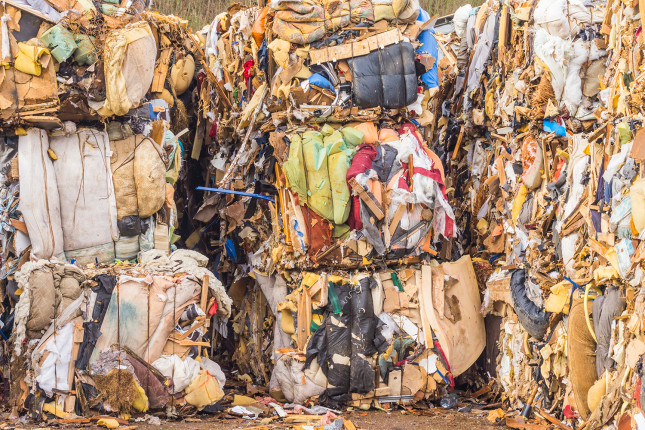
 If you watched Finding Nemo (who hasn’t?), you may remember Nemo’s home in the beautiful pink sea anemone with its tentacles waving around. These tentacles are able to sting and eat fish, crabs, and
If you watched Finding Nemo (who hasn’t?), you may remember Nemo’s home in the beautiful pink sea anemone with its tentacles waving around. These tentacles are able to sting and eat fish, crabs, and 